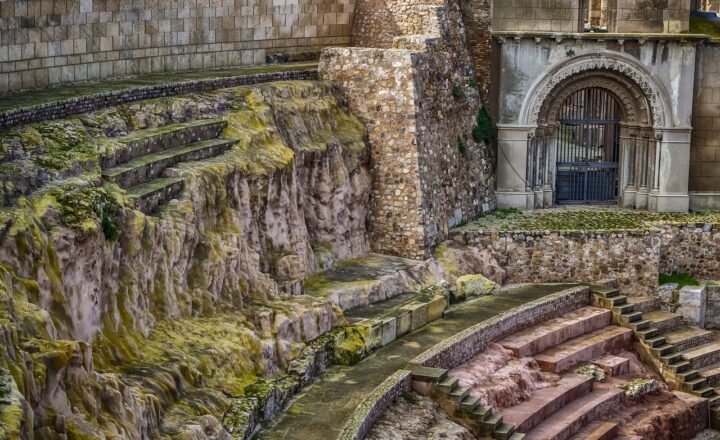
Political systems are the backbone of societies, shaping how power is distributed, how citizens engage with their governments, and the principles that guide governance. Though the structures may have evolved dramatically over the centuries, many of today’s political frameworks still bear the imprint of ancient civilizations. From the democratic ideals of ancient Athens to the autocratic governance seen in ancient empires, these historical precedents play an essential role in informing modern political systems. In this article, we will explore several ancient political systems and their enduring influence on contemporary governance models.
1. The Democratic Inspirations of Ancient Greece
Ancient Greece is often heralded as the cradle of democracy. The city-state of Athens introduced a direct form of governance where citizens (albeit a limited group) participated directly in decision-making processes. The assembly was open to all male citizens, providing a forum to discuss and vote on laws and policies. This groundbreaking model laid the foundation for contemporary democratic systems.
The principles of Athenian democracy include:
- Direct Participation: Unlike modern representative democracies, ancient Greeks practiced direct democracy, allowing citizens to engage face-to-face in discussions and decisions.
- Equal Voice: Athenian citizens had the right to speak and vote in the assembly, promoting the idea of equality in participation, which continues to be a value in modern democratic frameworks.
- Political Accountability: Officials were subject to scrutiny and could be held accountable for their actions, a principle mirrored in contemporary checks and balances in governance.
Understanding the way ancient Greeks conceptualized democracy contributes to our interpretation and implementation of democratic ideals today.
2. The Autocracy of Ancient Rome
The Roman Republic represents another significant framework in political history. Governance transitioned from a democratic model to an autocracy by the time of the Roman Empire, highlighting the tension between power and governance. Rome’s political evolution offers insights into how authoritarian regimes emerge from more democratic systems, acknowledging how power may centralize over time.
Key elements of Roman governance include:
- Separation of Powers: The Romans distinguished between different branches of government—executive, legislative, and judicial—that serve as a model for many modern governance systems that aim to prevent the concentration of power.
- Civic Duty: Participation in governance was seen as a responsibility of citizens, emphasizing the importance of civic engagement, a principle that resonates within democratic nations today.
- Senate Influence: The Senate played a crucial role in advisory capacities and decision-making, echoing the presence of legislative bodies in contemporary governments worldwide.
These features of Roman political life offer valuable lessons about governance structures and the potential pitfalls of transitioning away from democratic principles.
3. Feudalism in the Middle Ages: Power Dynamics and Hierarchy
Following the fall of Rome, feudalism arose throughout medieval Europe. This hierarchical system dictated social order, rights, and responsibilities, representing an entirely different governance model compared to the democracy of Greece or the republicanism of Rome.
Factors that define feudal governance include:
- Decentralization of Power: Feudalism favored local lords over centralized authority, influencing modern governance discussions, especially regarding federalism and regional autonomy.
- Land Ownership and Class Structure: The connection between land ownership and power persists in modern governance, notably in discussions around wealth distribution, and land reform policies.
- Community Roles: The relationship between lords and vassals underscores the importance of communal responsibilities in governance structures, a theme observed in social contracts seen in modern democracies.
Feudalism invites reflection on issues of inequality, representation, and the nature of power distribution in today’s political systems.
4. Eastern Philosophies: The Mandate of Heaven and Governance
Ancient Chinese political thought, particularly Confucianism, offers unique insights into governance as well. The concept of the ‘Mandate of Heaven’ illustrates the belief that a ruler’s authority is granted by a divine source contingent upon their ability to govern well. This concept profoundly influenced East Asian governance models.
Key aspects of Confucian influence include:
- Moral Leadership: Rulers are expected to govern with virtue, promoting ethical governance that resonates with modern ideals of integrity and public responsibility.
- Benevolent Governance: The emphasis on the welfare of the populace highlights the responsibility of governments today to prioritize citizen needs and rights.
- Hierarchical Order and Harmony: The importance of social order reflects ongoing discussions about authority and community in governance worldwide.
The teachings of Confucianism continue to inform attitudes toward leadership, ethical governance, and citizen-state relationships in various cultural contexts.
5. Contemporary Reflections: Transitions and Adaptations
Examining historical governance models allows us to appreciate how previous societies dealt with common issues such as power dynamics, citizen engagement, and ethical leadership. Today’s political scientists and policymakers often reference these ancient inspirations while crafting modern governance models that address contemporary challenges, including:
- Accountability in Governance: Moving from loosely governed societies to those with institutional frameworks demonstrates an ongoing effort to secure accountability and ethical leadership that can be traced back to Ancient Greece and Rome.
- Human Rights and Civic Duties: The notion of civic engagement and essential rights has evolved but owes its origins to discussions found in ancient political systems, thus reinforcing basic human dignity in today’s governance practices.
- Checks and Balances: Modern democracies continuously strive to uphold the principles of checks and balances established by ancient models, preventing the concentration of power and protecting citizen rights.
By analyzing ancient political systems, we can uncover wisdom and cautionary tales that inform our present governance approaches, encouraging adaptive frameworks suited to meet today’s societal needs.
Conclusion
The legacies of ancient political systems still profoundly affect our modern governance models. From the principles laid down in Athens to the moral frameworks of Confucianism, these historical examples are more than mere artifacts—they are living legacies that can guide contemporary governance. By learning from the past, we can aim to create more equitable, accountable, and responsive political systems that enhance the lives of citizens and uphold the values of democracy today. Facing modern challenges through the lens of history can equip us with the insights required to foster governance that values human dignity, promotes justice, and serves the greater good.
Taking the time to appreciate these enduring lessons reminds us that while systems evolve, the human pursuit of fair governance remains consistent, recasting ancient ideals into modern frameworks that enrich society.








